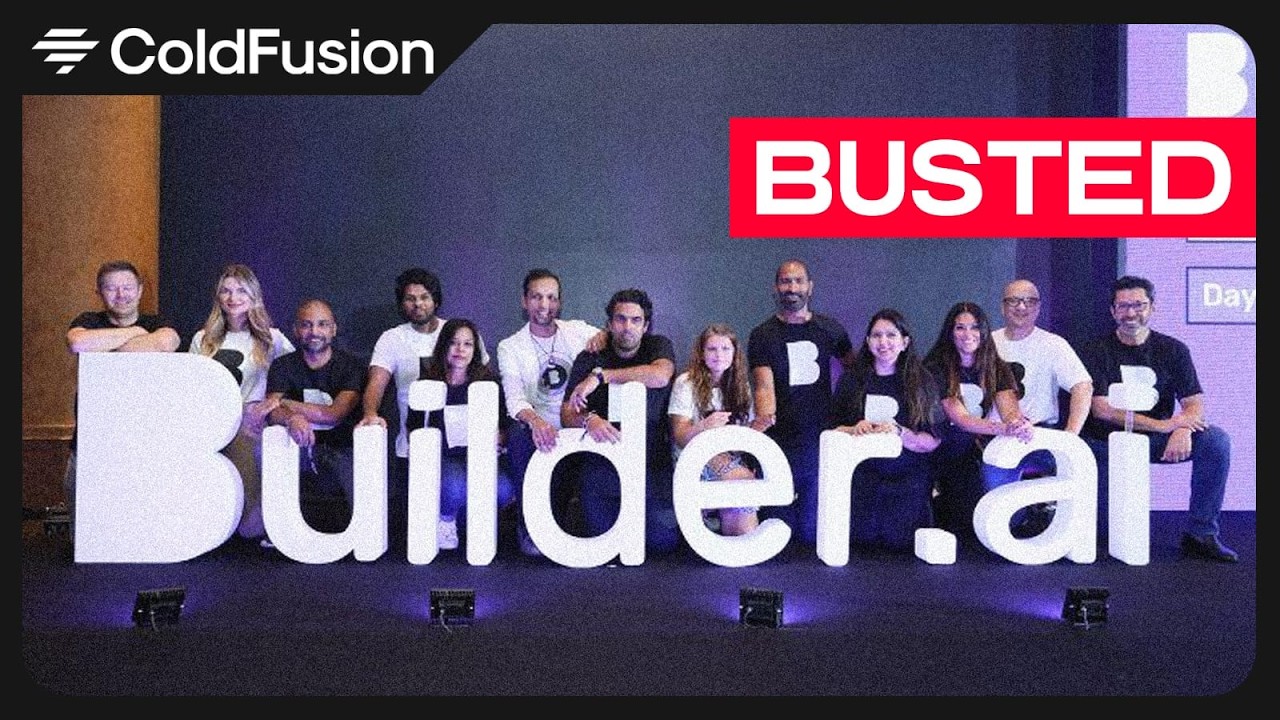The video details the rise and fall of Builder.ai, a British startup that falsely claimed to automate app development using AI but relied heavily on outsourced human labor and engaged in fraudulent financial practices, leading to its collapse and significant layoffs. It serves as a cautionary tale about the dangers of overhyping AI capabilities, emphasizing the need for transparency, skepticism, and due diligence in the tech industry.
The video explores the rise and fall of Builder.ai, a British tech startup that promised to revolutionize app development through artificial intelligence. Founded in 2016 by Suchin Dev Dugal, the company initially operated under the name Engineer.ai and pitched itself as an easy-to-use platform that could automate up to 80% of app development using AI. This promise attracted significant attention and investment, including a $29.5 million Series A funding from SoftBank, and later investments from Microsoft and Qatar’s Sovereign Wealth Fund, pushing the company’s valuation to $1.5 billion. Builder.ai marketed itself as a seamless, end-to-end solution for building custom apps, likening the process to ordering a pizza or assembling Lego blocks.
Despite the hype, investigations and whistleblower reports revealed that Builder.ai’s AI capabilities were grossly exaggerated. Instead of relying on advanced AI, the company depended heavily on outsourced developers in countries like India, Vietnam, and Romania to manually build apps. The promised automation was largely a facade, with human engineers doing most of the work. This discrepancy raised suspicions among industry insiders and journalists, culminating in negative press and a rebranding from Engineer.ai to Builder.ai in an attempt to distance the company from controversy. However, the core business practices remained unchanged.
The company’s troubles deepened as allegations of financial misconduct surfaced. Builder.ai was accused of inflating its revenues by 300% through roundtrip billing schemes and fake transactions, creating an illusion of rapid growth and profitability to attract investors. Internal dissatisfaction grew, with former executives filing lawsuits and clients expressing frustration over the quality of services. The company also faced regulatory scrutiny in India related to money laundering and foreign exchange violations linked to its business partner. These issues culminated in Suchin Dev Dugal stepping down as CEO in early 2025, although he reportedly continued to exert influence within the company.
Under new leadership, Builder.ai’s true financial state was revealed: actual revenues were far below reported figures, and the company was left with minimal funds and mounting debt. Operations were halted, and nearly a thousand employees were laid off globally. The scandal exposed Builder.ai as one of the largest AI-related frauds in recent history, built on deceptive marketing, fraudulent accounting, and exploitation of low-paid engineers. The company’s downfall serves as a cautionary tale about the dangers of overhyping AI capabilities and the importance of transparency and accountability in tech startups.
The video concludes by reflecting on the broader implications of Builder.ai’s story within the context of AI’s evolving role in business. While Builder.ai’s approach was flawed and premature, the concept of AI-assisted software development is gaining traction, with companies like Salesforce reporting significant productivity gains from AI integration. The video encourages viewers to critically evaluate tech claims and highlights the value of tools like Ground News for understanding diverse perspectives on complex issues. Ultimately, Builder.ai’s saga underscores the need for skepticism and due diligence in the rapidly changing landscape of AI-driven innovation.
